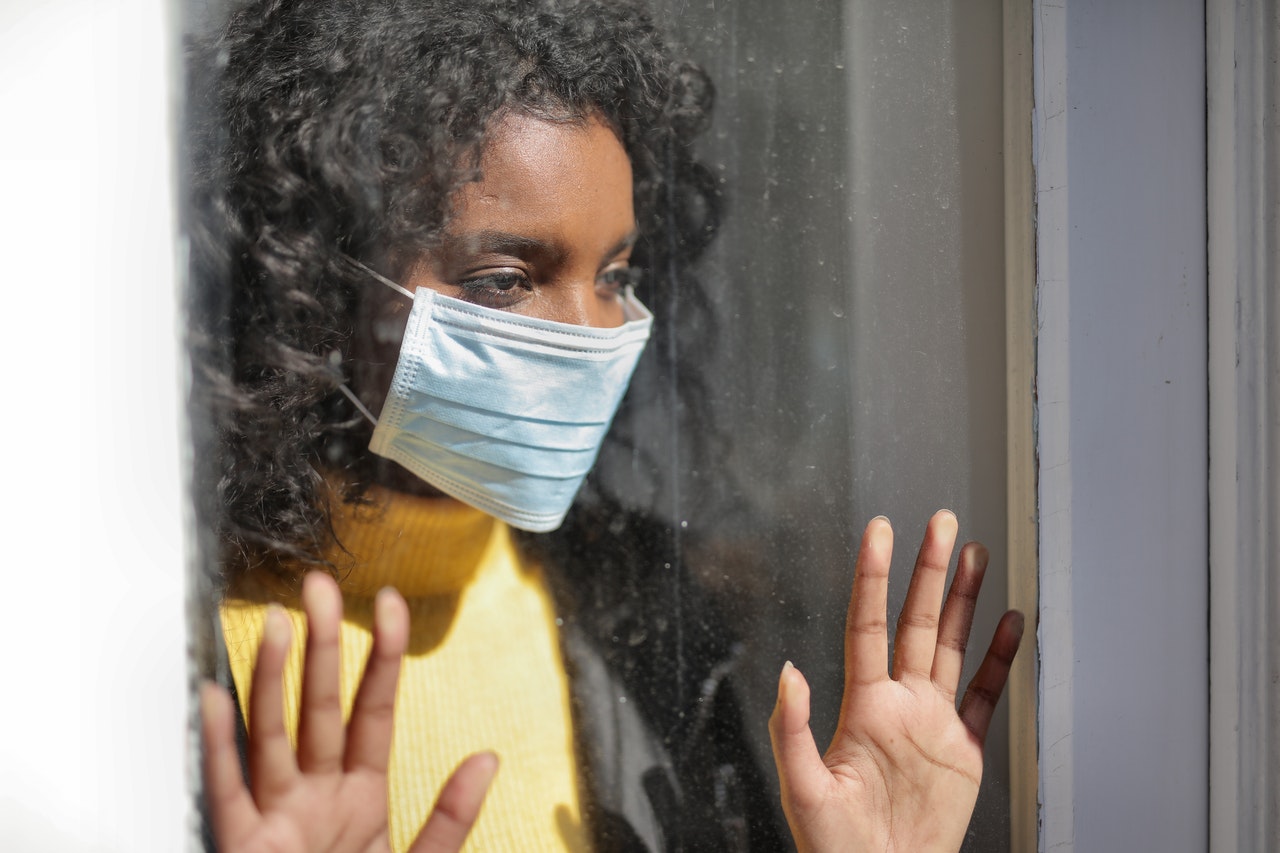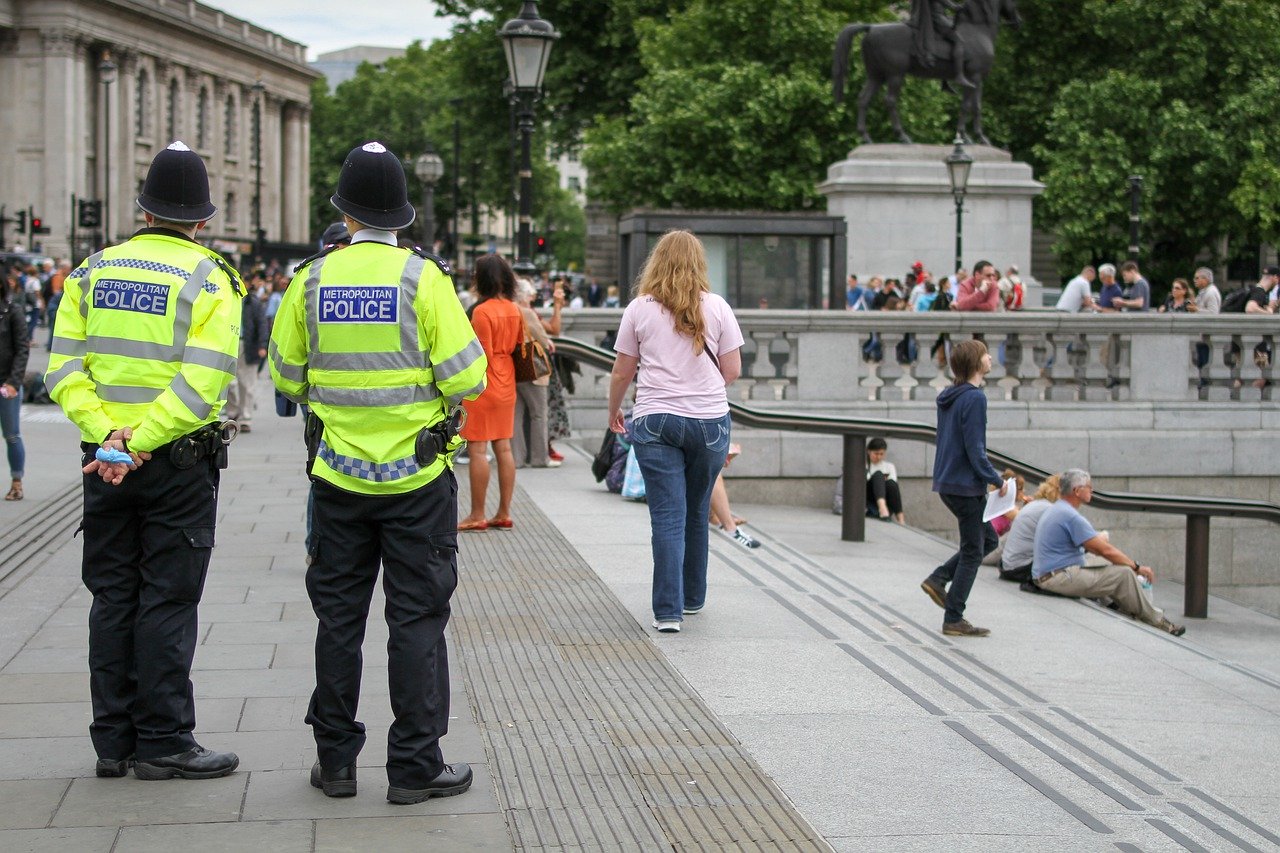Black Londoners are more than twice as likely to be fined under new coronavirus laws as white people, Metropolitan Police figures have revealed.
Britain entered lockdown on 23 March to slow the spread of Covid-19, with people ordered to stay home except for essential work, food shopping, medical reasons, or limited exercise.
Police were given new powers to enforce the emergency law – with £100 fines for those who break the rules.
Some 973 fines were issued in London from 27 March to 14 May, according to Met figures.
But more than a quarter (26%) were against black Londoners – although they represent just 12% of the population in the capital.
Black residents were even more disproportionately represented in arrests for Covid-19 offences – making up 31% of those detained.
In total, 232 black residents were arrested for Covid-19 offences, of a total of 747 arrests – although only 36 of these were for coronavirus breaches only.
The Met said most of the fines issued were at the start of lockdown, particularly during periods of sunny weather.
Stay-home restrictions in England have since been relaxed – people can now spend unlimited time outside, and meet with other households in groups of six outdoors, as long as social distancing is maintained.
Fines have been beefed up from the initial £60 to £100 for a first time breach – doubling for each repeat offence to a maximum of £3,200.
Met Commissioner Cressida Dick said she is “not surprised” by the disproportionality in the figures – and has not asked officers to adjust their approach to tackle the problem.
Speaking at a virtual meeting of the London Assembly police and crime committee, the commissioner said Covid-19 fines and arrests in London are “very low full stop”.
Police officers are “incredibly restrained in the main” and “extraordinarily friendly” when enforcing the new laws, she said.
NOW READ: Calls for City Corporation to support Black charities following George Floyd death
“We spend a lot of time engaging people, explaining the restrictions, encouraging people, advising, cajoling – wanting people to comply,” Commissioner Dick claimed.
“We use common sense and discretion and only enforce where the officer believes they must.”
But the Met boss said she has not asked police to “stop acting in this manner which will lead to disproportionality” and “wouldn’t in retrospect either”.
“I don’t see that as an issue that it’s appropriate to do this about,” she said.
But London Assembly members warned that the Met must address potential racial bias.
Labour London Assembly member Jennette Arnold – who represents Islington, Hackney, and Waltham Forest – said numerous constituents have contacted her with concerns.
“We can never forget the Met’s history, and its relationship with the BAME community,” she said.
“That is at the forefront of the thoughts of every grandparent, every parent and now third generation youngster – the relationship with the police service.”
Black Londoners are less likely to trust the police than white residents – just 65% believe Met officers treat everyone fairly, compared to 76% of white Brits.
Ms Arnold said that though the number of arrests is currently small, the problem must be tackled at this “starting point” – or the problem will “grow” and “take over”, she warned.
Green member Sian Berry said police officers may could have “unconscious bias” – which may mean fines are handed out more readily to black residents.
“Potentially, officers do not have the same attitude towards black Londoners as they do towards other Londoners,” she warned.
Speaking after the meeting, Ms Berry said the Commissioner’s response was “not good enough” – as the problem needs “action and leadership from the top”.
Disproportionate fines and arrests of black Londoners must not be “swept under the carpet”, she said.
“It is not a coincidence that yet again we are seeing harsh police tactics being used more often against the black community,” she added.
“The reasons behind this must be taken seriously.”
For the latest headlines from the City of London and beyond, follow City Matters on Twitter, Instagram and LinkedIn.








